Scaffolding Rental Coopertown
Find the best Affordable Scaffolding Rental in Coopertown
Receive 3 FREE Scaffolding Rental Services quotes for your project today! Compare profiles, reviews, accreditations, portfolio, etc... and choose the best service.
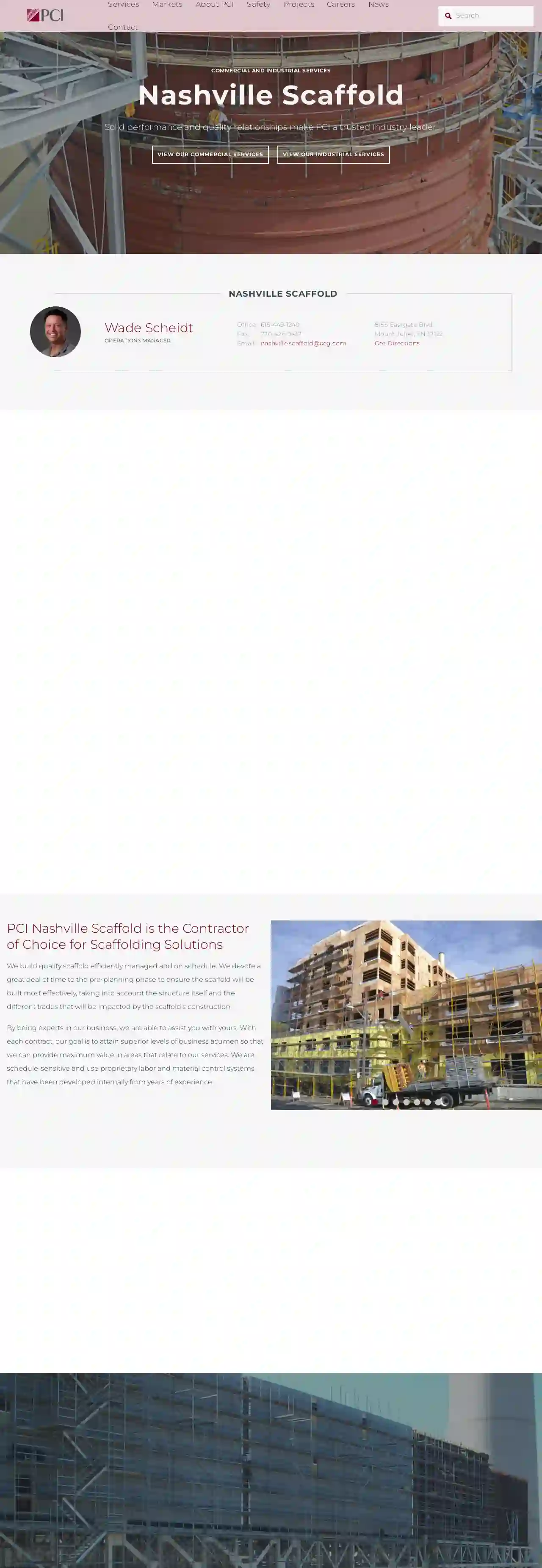
Performance Contracting Inc
4.52 reviewsMount Juliet, TN, 8155 Eastgate Blvd., 37122, USPerformance Contracting, Inc. (PCI) is a leading specialty contractor in the United States, providing a wide range of services and products to industrial, commercial, and non-residential sectors. PCI is a 'one-stop-shop' contractor, offering comprehensive solutions tailored to clients' specific needs. The company prioritizes safety, with an award-winning 'Target Zero Incidents' safety program that ensures a secure and efficient work environment for all projects. PCI's commitment to excellence and customer satisfaction sets them apart as a trusted industry leader.
- Services
- Why Us?
- Accreditations
- Our Team
- Testimonials
- Gallery
Get Quote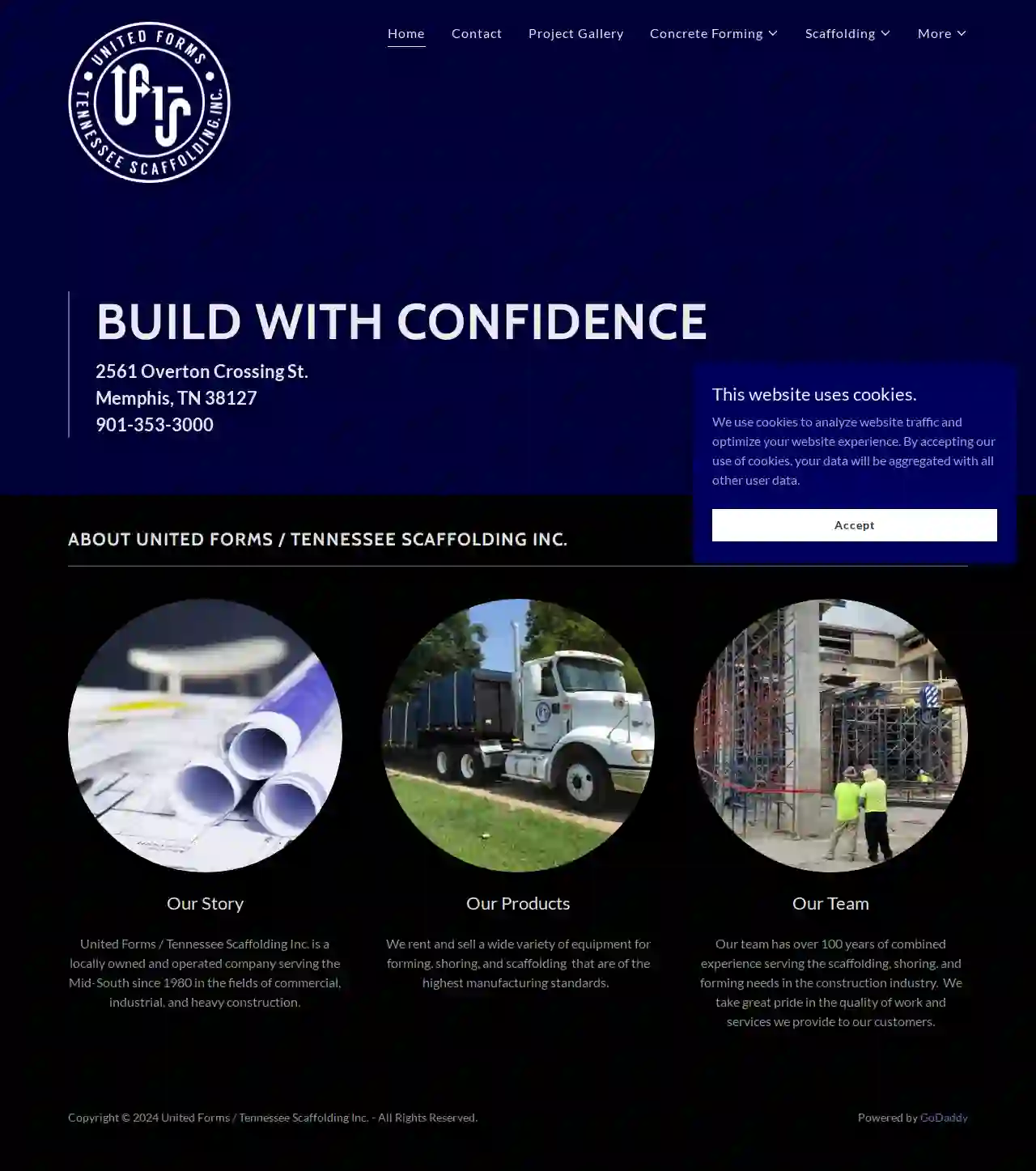
United Forms/Tennessee Scaffolding Inc.
4.115 reviews2561 Overton Crossing St., Memphis, 38127, USUnited Forms / Tennessee Scaffolding Inc. is a locally owned and operated company serving the Mid-South since 1980 in the fields of commercial, industrial, and heavy construction. We rent and sell a wide variety of equipment for forming, shoring, and scaffolding that are of the highest manufacturing standards. Our team has over 100 years of combined experience serving the scaffolding, shoring, and forming needs in the construction industry. We take great pride in the quality of work and services we provide to our customers.
- Services
- Why Us?
- Gallery
Get Quote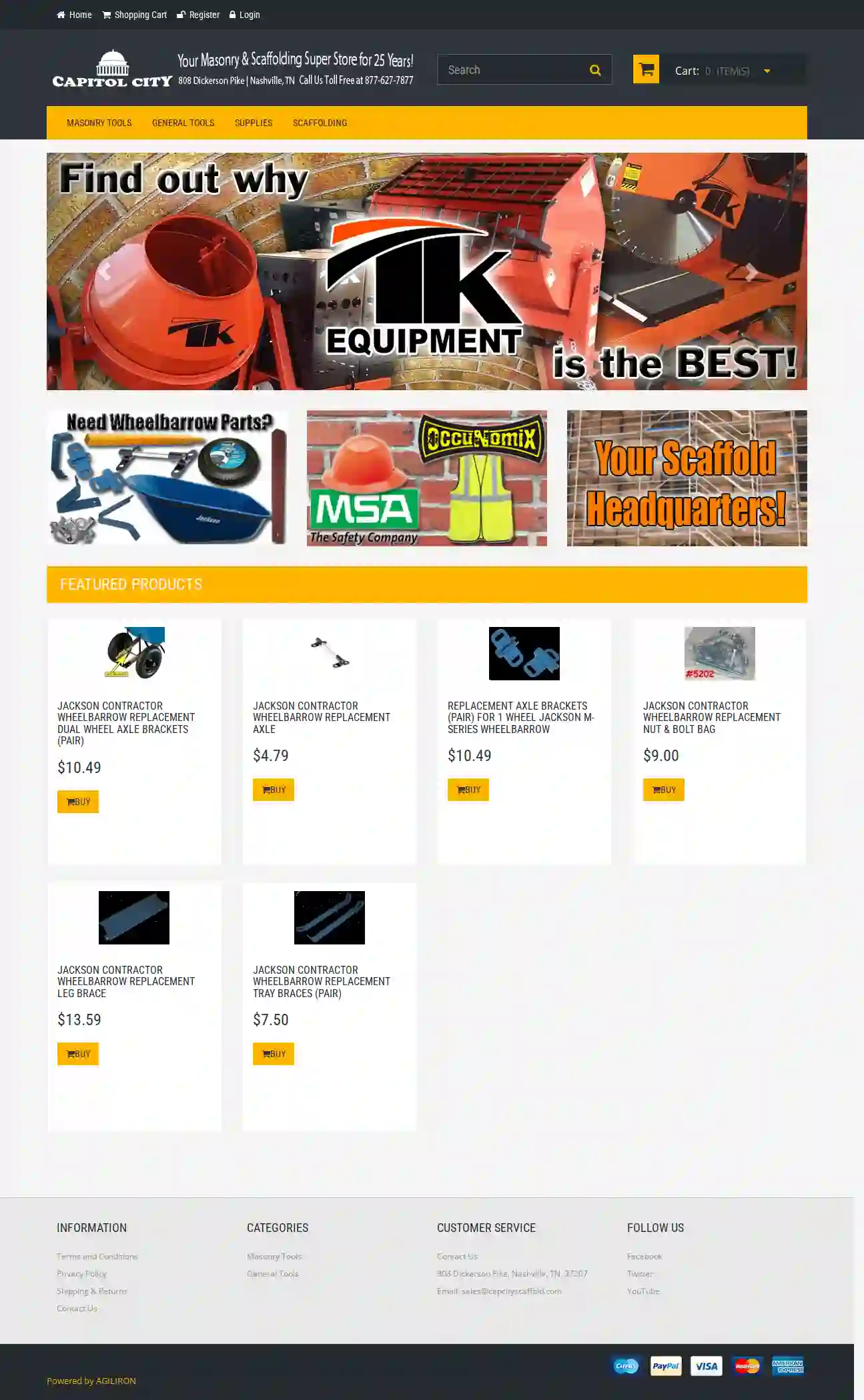
Capitol City Scaffolding And Equipment
4.743 reviews808 Dickerson Pike, Nashville, TN, 37207, USAbout CapCity Scaffold CapCity Scaffold is your one-stop shop for all your scaffolding needs. We offer a wide variety of scaffolding products, including scaffolding, ladders, and other construction equipment. We are committed to providing our customers with the highest quality products and services at competitive prices. Our team of experts is always available to answer your questions and help you find the right products for your needs. We are proud to serve the Nashville, TN area. We are committed to providing our customers with the best possible service and support. We are always looking for ways to improve our products and services. We are committed to providing our customers with the best possible experience.
- Services
- Why Us?
- Gallery
Get Quote
Performance Contracting Inc
2.47 reviews1430 E. Weisgarber, Knoxville, 37909, USPerformance Contracting, Inc. is a leading specialty contractor in the United States, providing a comprehensive range of solutions and services to its valued clients. With over 60 years of industry experience, PCI expertly delivers innovative solutions tailored to the specific needs of diverse market sectors. The company's dedication to excellence ensures that it consistently meets and exceeds customer expectations, setting the standard in the construction industry. PCI's people-centric culture is nurtured by employees who embody its core values daily, and it's passionate about empowering them to achieve their greatest potential. The company's safety program is award-winning, providing training and keeping workers fully dedicated and accountable to the safety and integrity of every project and property. PCI's versatility and extensive knowledge of insulation and specialty services provide quality workmanship, superior project management, and exceptional safety performance.
- Services
- Why Us?
- Gallery
Get Quote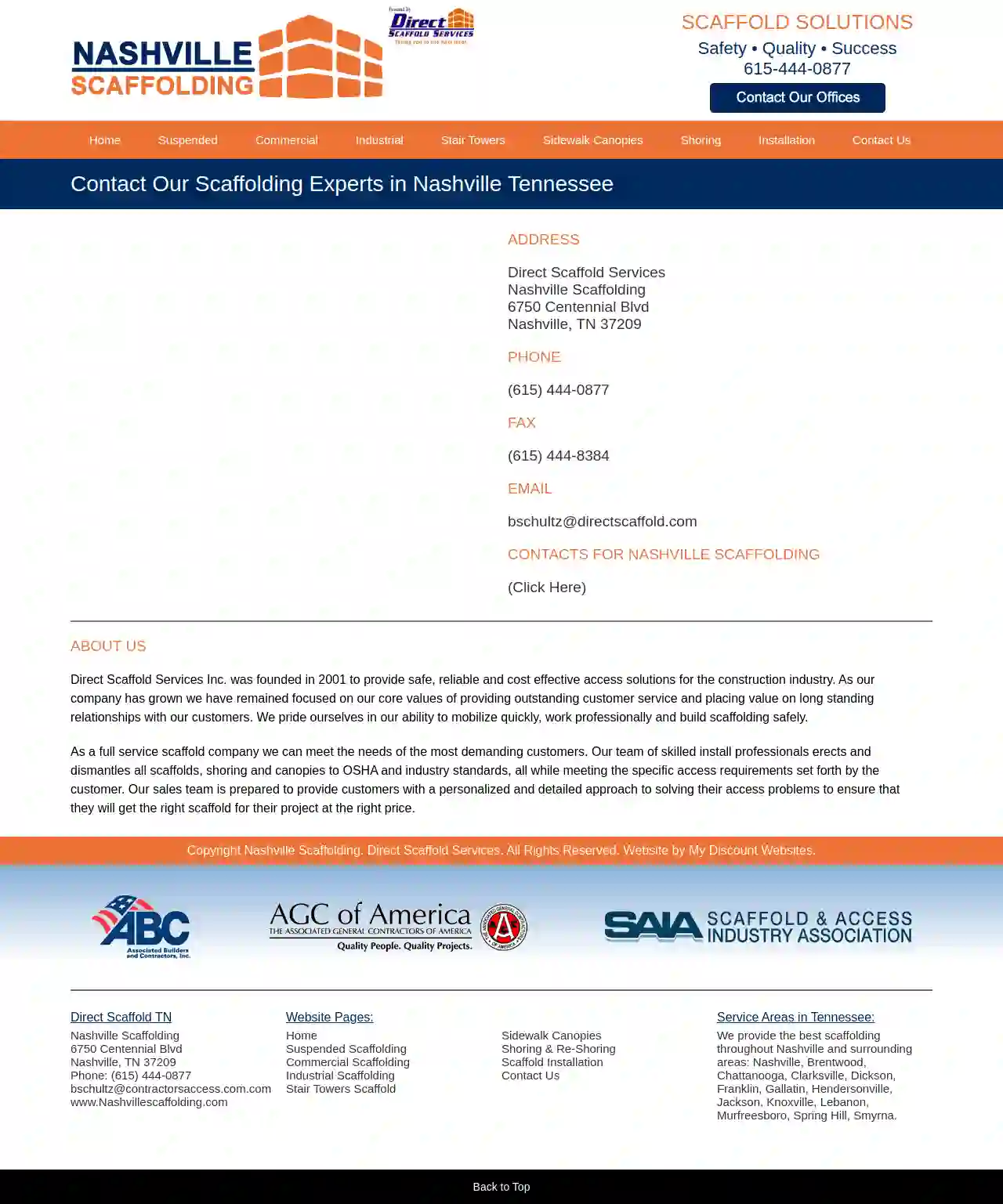
Direct Scaffold Services / Nashville Scaffolding
4.414 reviews6750 Centennial Blvd, Nashville, 37209, USDirect Scaffold Services Inc. was founded in 2001 to provide safe, reliable and cost effective access solutions for the construction industry. As our company has grown we have remained focused on our core values of providing outstanding customer service and placing value on long standing relationships with our customers. We pride ourselves in our ability to mobilize quickly, work professionally and build scaffolding safely. Our team of skilled install professionals erects and dismantles all scaffolds, shoring and canopies to OSHA and industry standards, all while meeting the specific access requirements set forth by the customer. Our sales team is prepared to provide customers with a personalized and detailed approach to solving their access problems to ensure that they will get the right scaffold for their project at the right price.
- Services
- Why Us?
- Accreditations
- Gallery
Get Quote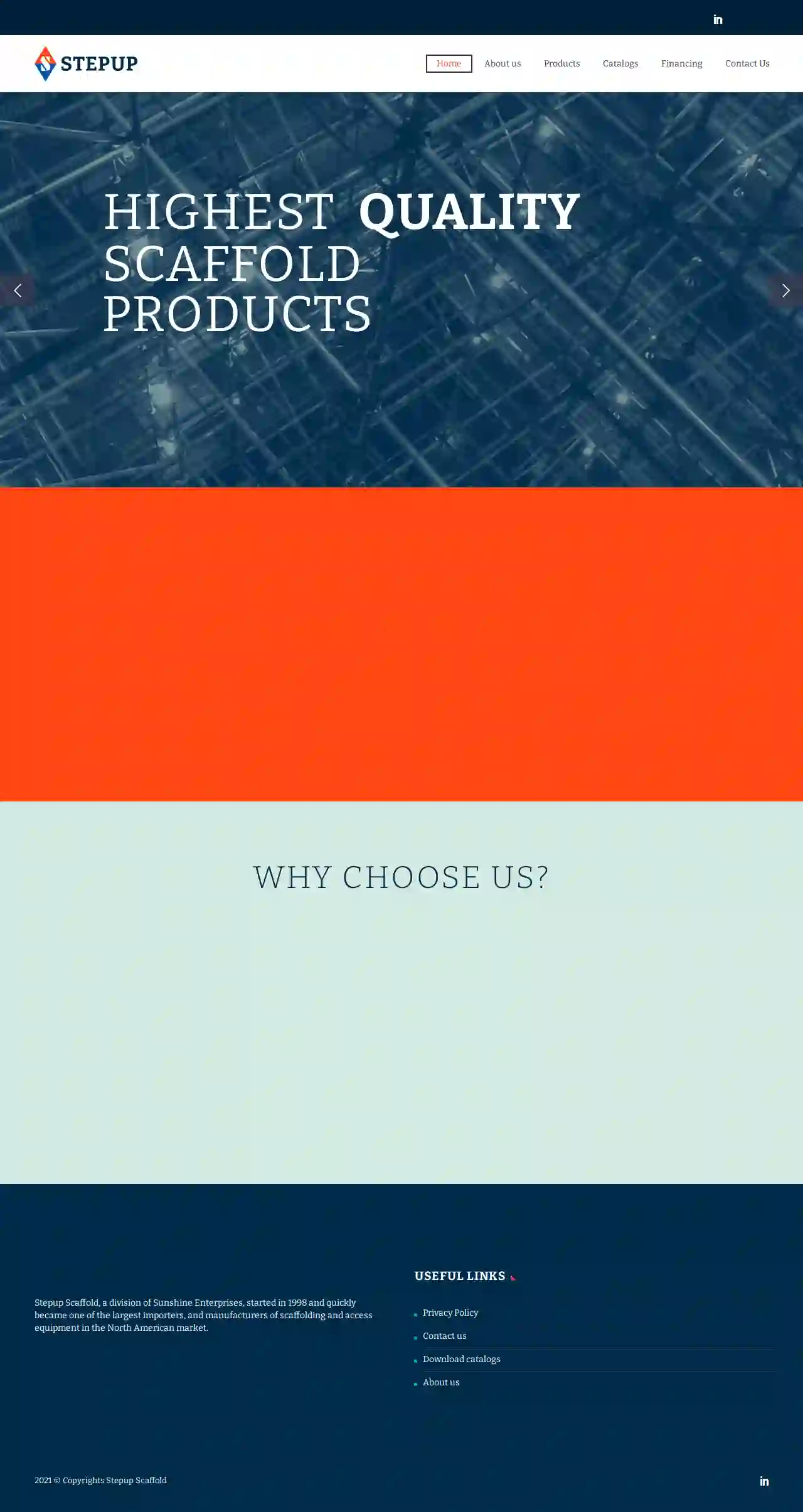
StepUP Scaffolding LLC - Corporate Headquarters
51 reviewsMiami, FL, USA, 1234 NW 12th St, 33122, USStepUp Scaffold, a division of Sunshine Enterprises, started in 1998 and quickly became one of the largest importers and manufacturers of scaffolding and access equipment in the North American market. Our commitment to Quality, Service, and Satisfaction influences everything we do. We believe that a high tide raises all boats, so to raise everything and everyone, our statement of purpose, simply put is that “We elevate our employees, customers, and industries to safely move, build, and maintain the world.”
- Services
- Why Us?
- Accreditations
- Our Team
- Testimonials
- Gallery
Get Quote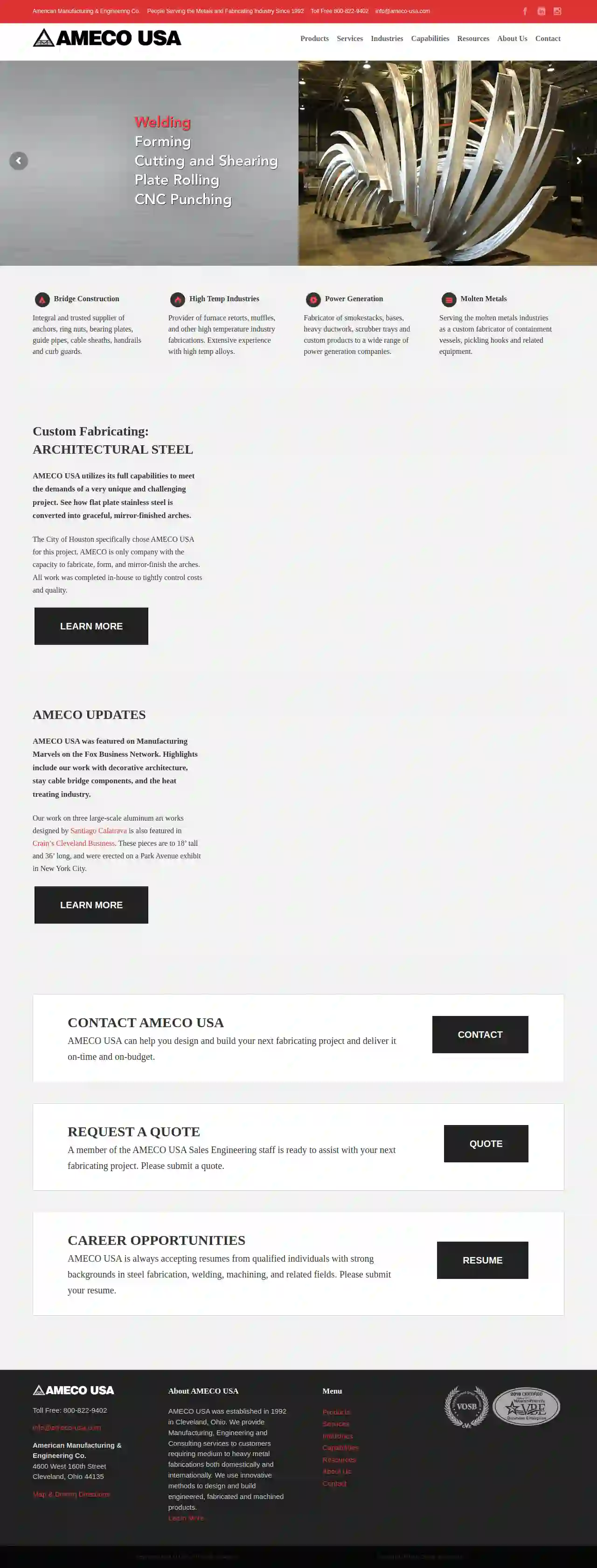
AMECO USA
4.710 reviews4600 West 160th Street, Cleveland, 44135, USAbout AMECO USA American Manufacturing & Engineering Company (AMECO USA) was established in 1992 in Cleveland, Ohio. AMECO USA provides Manufacturing, Engineering and Consulting services to customers requiring medium to heavy metal fabrications. AMECO USA is a full custom solutions provider to industrial manufacturing companies both domestically and internationally. We specialize in innovative methods to design and build Engineered fabricated and machined products.
- Services
- Why Us?
- Accreditations
- Our Team
- Gallery
Get Quote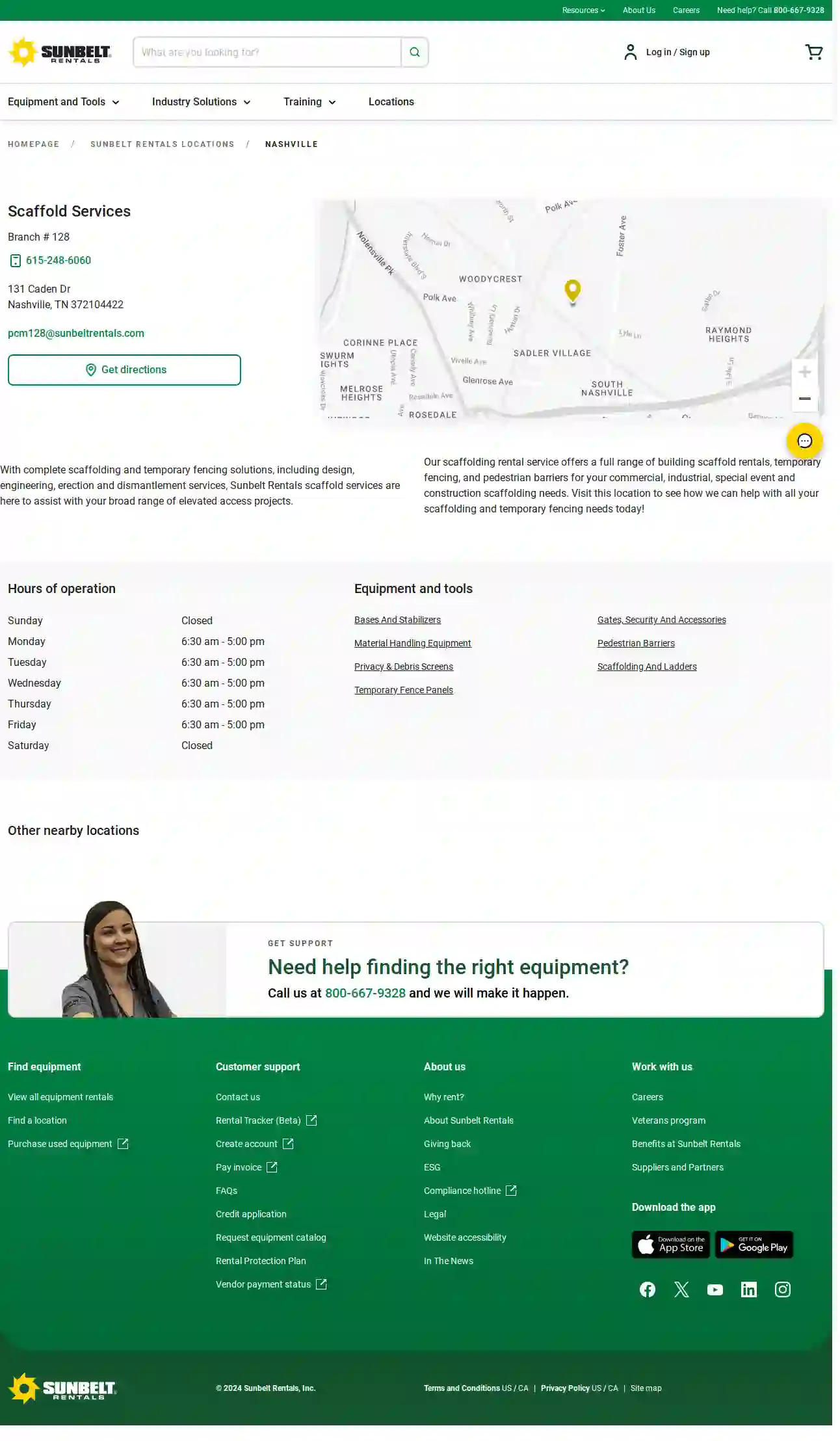
Sunbelt Rentals Scaffold Services
510 reviewsSunbelt Rentals Inc., 123 Sunbelt Lane, Nashville, 12345, USSunbelt Rentals is a leading provider of equipment rentals, offering a wide range of aerial work platforms, scaffolding, ladders, cranes, boom trucks, and more. With a commitment to customer satisfaction and safety, Sunbelt Rentals provides top-quality equipment and exceptional customer service. Their team of experts is dedicated to helping customers find the right equipment for their projects. Sunbelt Rentals also offers a variety of resources, including a blog, FAQs, and customer support, ensuring that customers have all the information they need to make informed decisions.
- Services
- Why Us?
- Accreditations
- Our Team
- Testimonials
- Gallery
Get Quote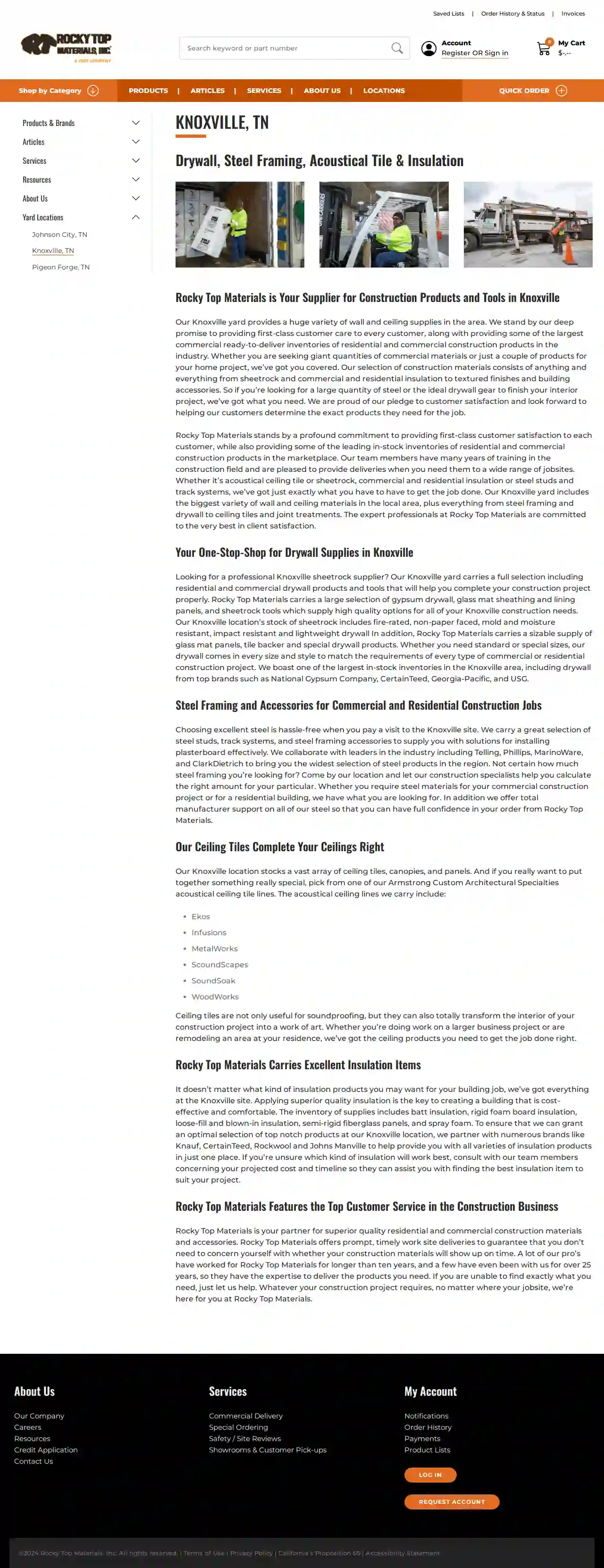
Rocky Top Materials
4.530 reviews2707 John Deere Dr., Knoxville, 37917, USRocky Top Materials is a leading supplier of construction products and tools, offering a wide variety of wall and ceiling supplies. With a commitment to customer satisfaction and a promise of providing first-class customer care, Rocky Top Materials stands out in the industry. Their selection of construction materials includes drywall, steel, acoustical, and tools, among others. They also provide services such as commercial delivery, special ordering, safety site reviews, and showrooms for customer pick-ups.
- Services
- Why Us?
- Accreditations
- Our Team
- Testimonials
- Gallery
Get Quote
BrandSafway Solutions Knoxville
4.73 reviews123 Main St, Knoxville, 37922, USBrandSafway is a leading provider of access solutions and industrial services in Knoxville, Tennessee. With a strong commitment to safety and customer satisfaction, we offer a wide range of services, including scaffolding, insulation, coatings, and more. Our team of experienced professionals is dedicated to delivering high-quality solutions that meet the unique needs of our clients. At BrandSafway, we pride ourselves on our ability to provide innovative solutions that help our clients achieve their goals. Whether you're working on a construction project, a maintenance shutdown, or an industrial turnaround, we have the expertise and resources to help you succeed.
- Services
- Why Us?
- Accreditations
- Our Team
- Testimonials
Get Quote
Over 2,353+ Scaffolding Contractors on our directory
Our scaffolding experts operate in Coopertown and surrounding areas!
ScaffoldingHQ has curated and vetted Top Scaffolding Companies near Coopertown. Find a top & reliable contractor today.
Frequently Asked Questions About Scaffolding Rental
- Small Repairs or Painting: A rolling tower or mobile scaffolding is often sufficient for smaller projects, providing a stable platform at lower heights.
- Roof Work: Roofing projects typically require taller and more robust scaffolding, like tube and clamp or system scaffolding.
- Two-Story Homes: For accessing higher levels of a two-story home, you may need a larger system scaffolding structure.
- Limited Access: If space is restricted, consider a narrow-width scaffolding tower or suspended scaffolding.
- Construction: Building new structures, adding extensions, and performing facade work.
- Renovation and Repair: Repairing or replacing roofs, siding, windows, and gutters.
- Maintenance: Cleaning windows, painting, and performing general upkeep on buildings.
- Industrial Work: Accessing elevated equipment, performing inspections and repairs on industrial structures, and carrying out construction work in industrial settings.
- Events: Creating temporary stages, grandstands, and platforms for concerts, festivals, and sporting events.
- Base Plates and Adjusters: Use adjustable base plates to level the scaffolding legs on uneven surfaces.
- Ground Preparation: Level the ground as much as possible before erection.
- Bracing and Support: Additional bracing and support may be necessary to compensate for uneven ground conditions.
- Professional Assessment: A qualified scaffolding erector should assess the ground and determine the appropriate measures for safe erection.
- Daily: For short-term tasks or smaller projects.
- Weekly: A common option for projects lasting a few days to a week.
- Monthly: Suitable for larger or longer-term projects.
- Custom Duration: Some companies may offer custom rental periods to fit your specific timeframe.
What type of scaffolding is best for home use?
What is scaffolding used for?
Can I use scaffolding on uneven ground?
How long can you rent scaffolding for?
What type of scaffolding is best for home use?
- Small Repairs or Painting: A rolling tower or mobile scaffolding is often sufficient for smaller projects, providing a stable platform at lower heights.
- Roof Work: Roofing projects typically require taller and more robust scaffolding, like tube and clamp or system scaffolding.
- Two-Story Homes: For accessing higher levels of a two-story home, you may need a larger system scaffolding structure.
- Limited Access: If space is restricted, consider a narrow-width scaffolding tower or suspended scaffolding.
What is scaffolding used for?
- Construction: Building new structures, adding extensions, and performing facade work.
- Renovation and Repair: Repairing or replacing roofs, siding, windows, and gutters.
- Maintenance: Cleaning windows, painting, and performing general upkeep on buildings.
- Industrial Work: Accessing elevated equipment, performing inspections and repairs on industrial structures, and carrying out construction work in industrial settings.
- Events: Creating temporary stages, grandstands, and platforms for concerts, festivals, and sporting events.
Can I use scaffolding on uneven ground?
- Base Plates and Adjusters: Use adjustable base plates to level the scaffolding legs on uneven surfaces.
- Ground Preparation: Level the ground as much as possible before erection.
- Bracing and Support: Additional bracing and support may be necessary to compensate for uneven ground conditions.
- Professional Assessment: A qualified scaffolding erector should assess the ground and determine the appropriate measures for safe erection.
How long can you rent scaffolding for?
- Daily: For short-term tasks or smaller projects.
- Weekly: A common option for projects lasting a few days to a week.
- Monthly: Suitable for larger or longer-term projects.
- Custom Duration: Some companies may offer custom rental periods to fit your specific timeframe.